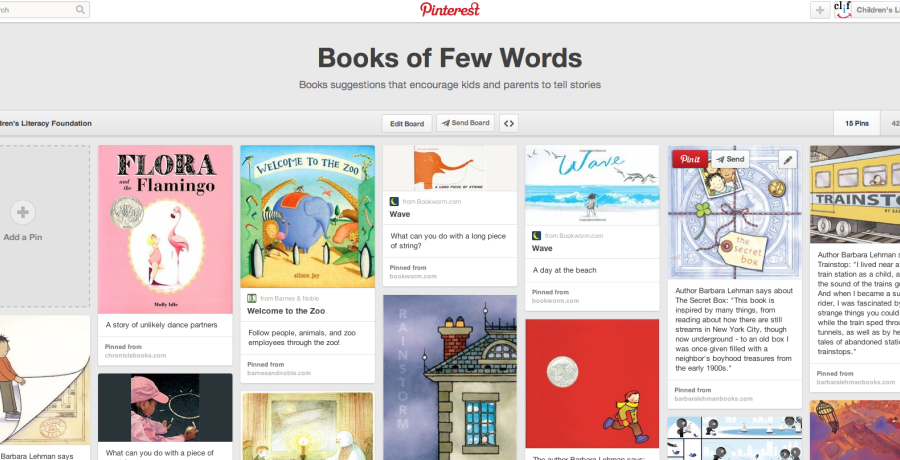
I love a good story. But making them up on the spot doesn’t come naturally to me. I dread when my child asks “tell me a story.”
She usually asks when I feel least creative – driving to school, waiting in the doctor’s office, or sitting in her bed in the middle of the night after a nightmare or an upset stomach. I can distract her in the car and in any waiting room by offering to play the “story game,” in which we take turns telling a portion of the story. But I wish purely making up stories came more easily to me.
At the kickoff of Vermont’s Let’s Grow Kids campaign on April 25, CLiF provided a table of books and demonstrated reading aloud and illustration-based storytelling. I watched one young man read to his preschool class. He was animatedly flipping through a book while the children laughed and pointed at the pictures. When he reached for another book, I heard them yell, “Make it up!” He was not reading the book, but crafting his own story from the illustrations.
While we encourage this kind of storytelling at CLiF, it’s hard for me; I feel compelled to read the words written by the author. My happy medium is wordless or nearly wordless books.
Telling stories through wordless books helps children build vocabulary, encourage creativity, and relate the story to their own experiences. Many of the skills developed through telling these stories are key to new Common Core standards, such as understanding context, using figurative language, recognizing cause and effect and chronology, and responding to questions. Surprisingly, this Canadian study found parents use more complex language when they read wordless books.
Regardless of the educational benefits, sharing wordless books reminds parents how amazing our children’s minds are. I think back to reading wordless books with my daughter as a toddler and how we just pointed out the things we recognized. Now, as a kindergartner, she can weave different stories around different characters, objects, plot points. She can use the images to write her own stories.
Click here for some of our favorite wordless and nearly wordless books.




Here is a recently published article about the benefits of sharing wordless books. http://www.slj.com/2014/05/authors-illustrators/how-wordless-picture-books-empower-children-slj-day-of-dialogue-2014/#_